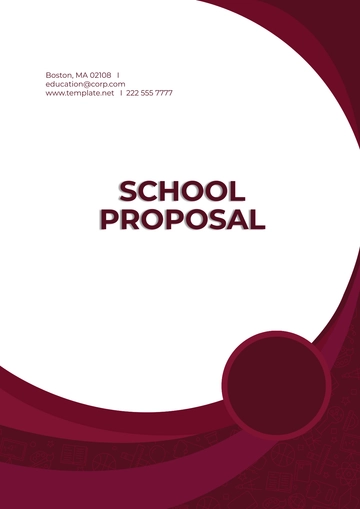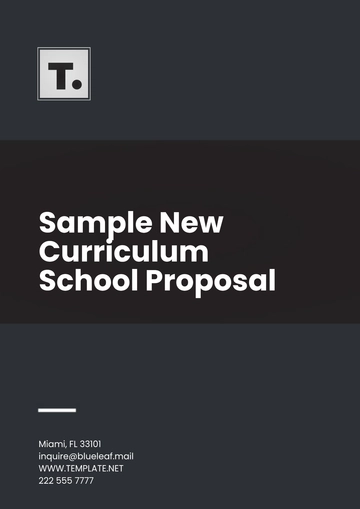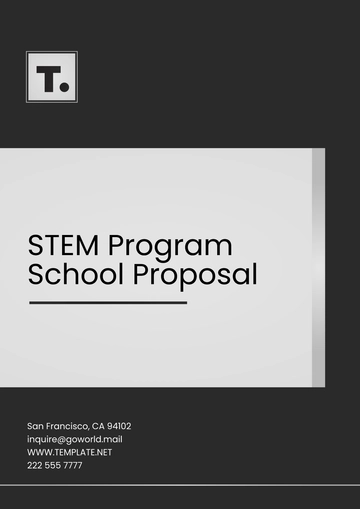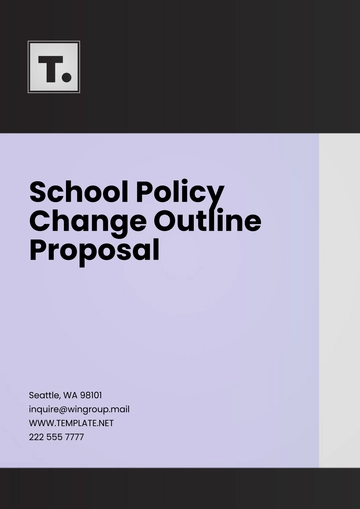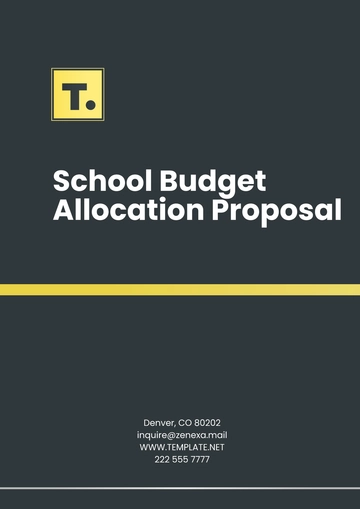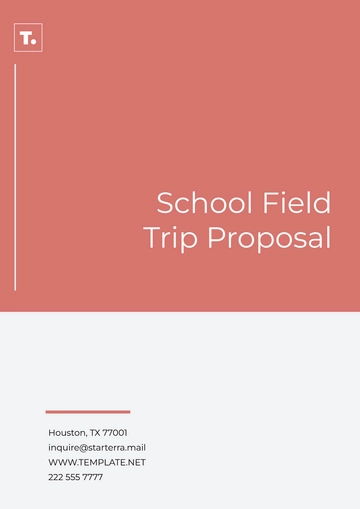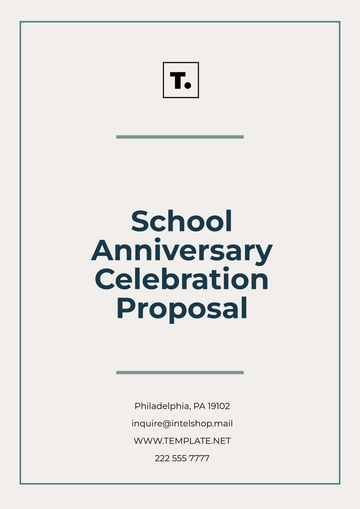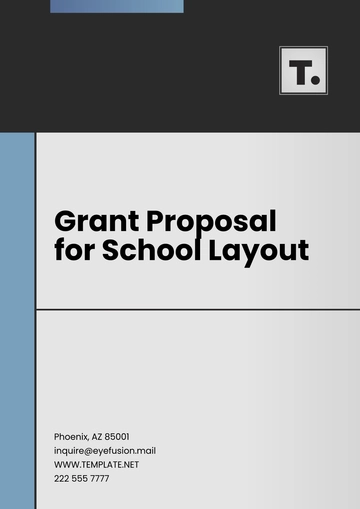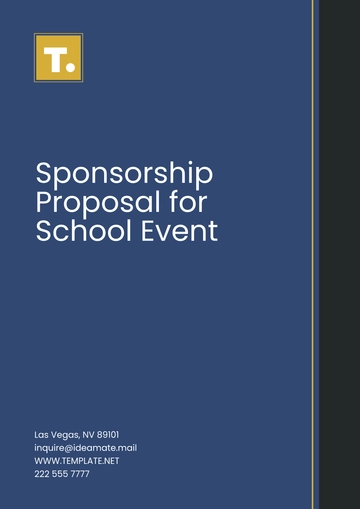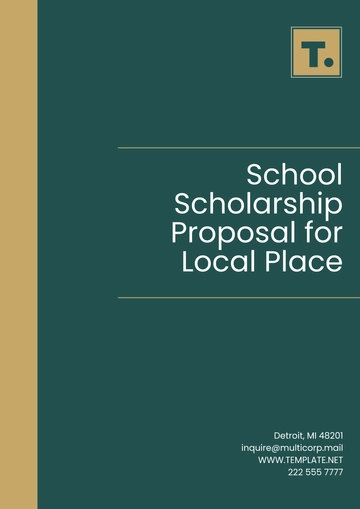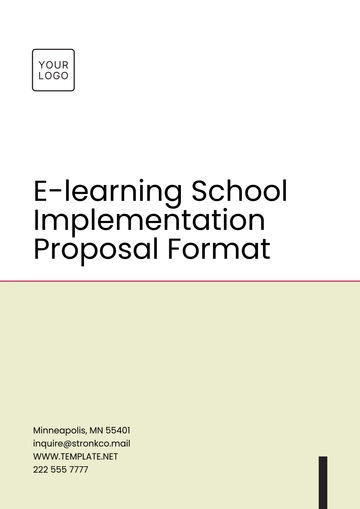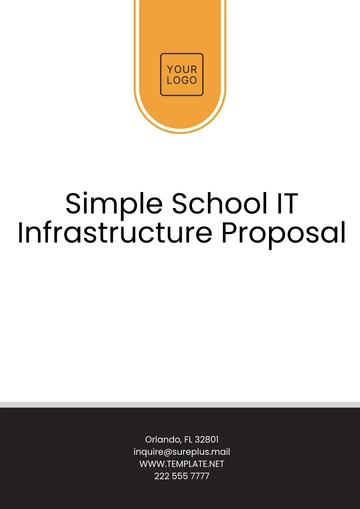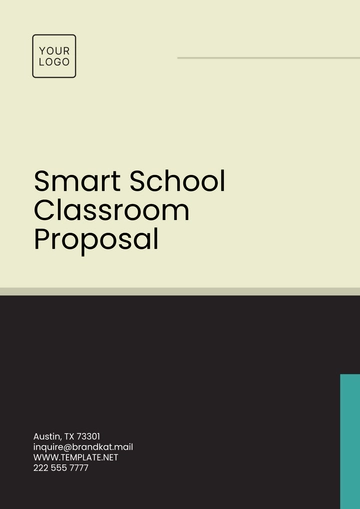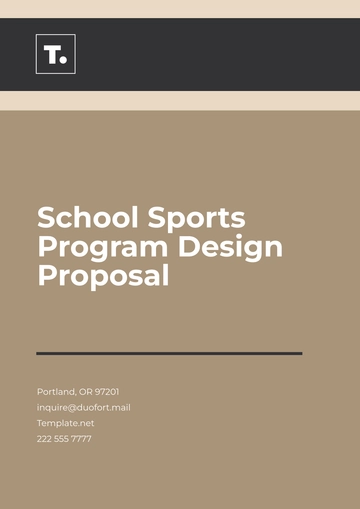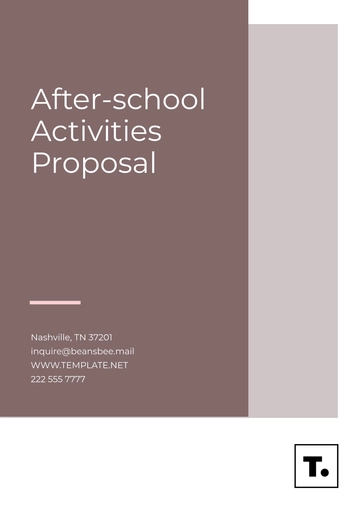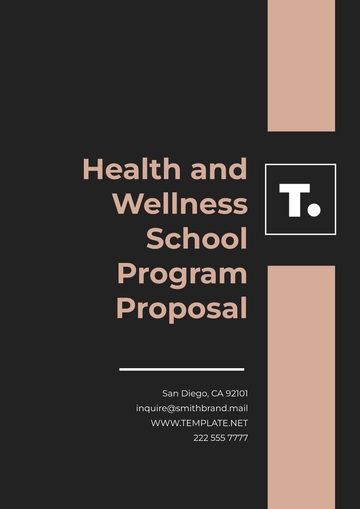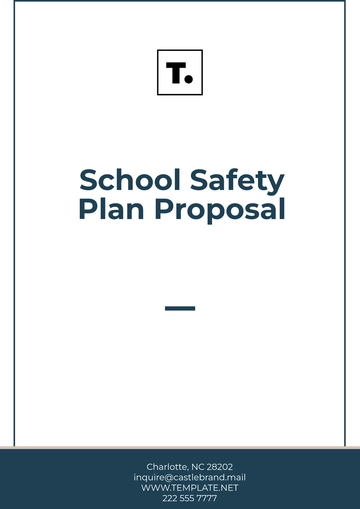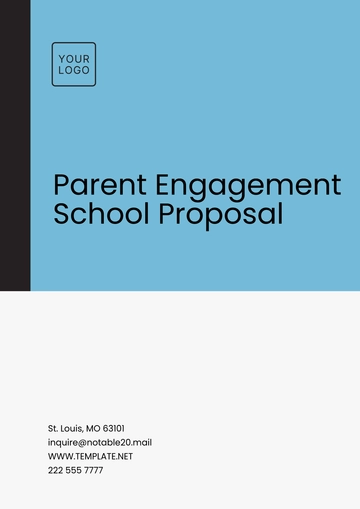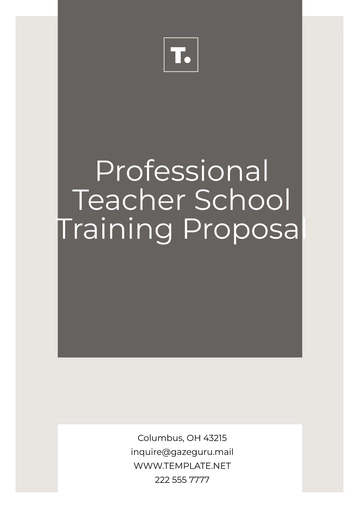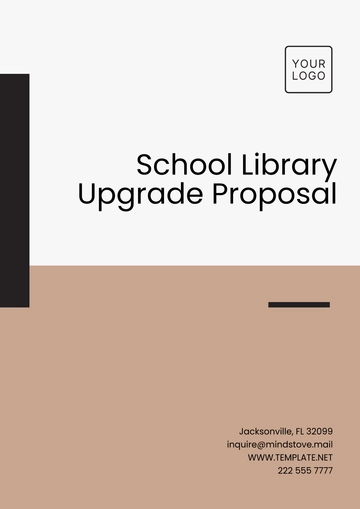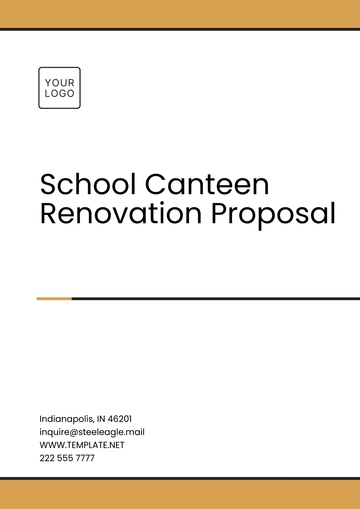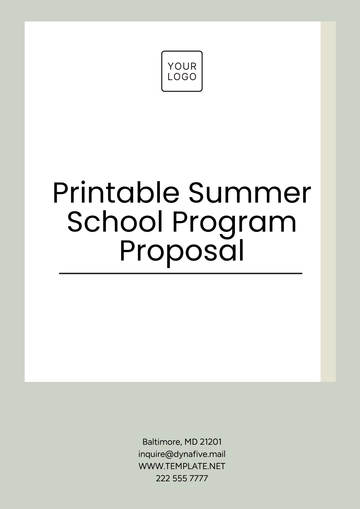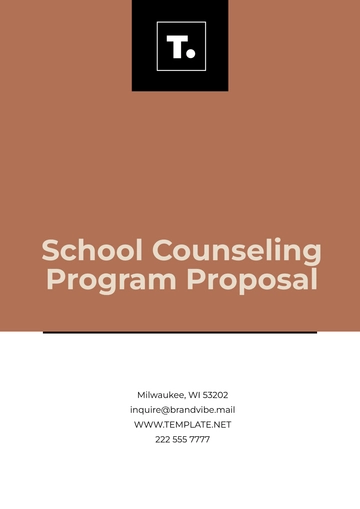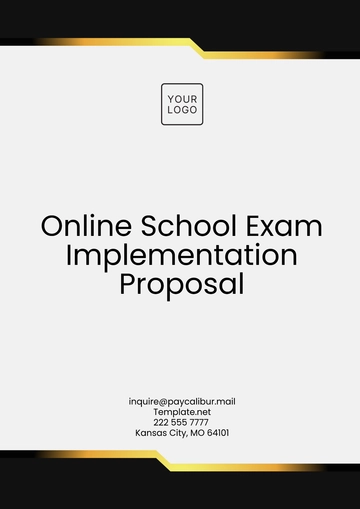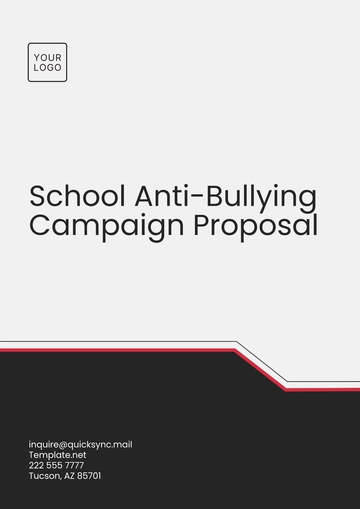Free School Service Proposal
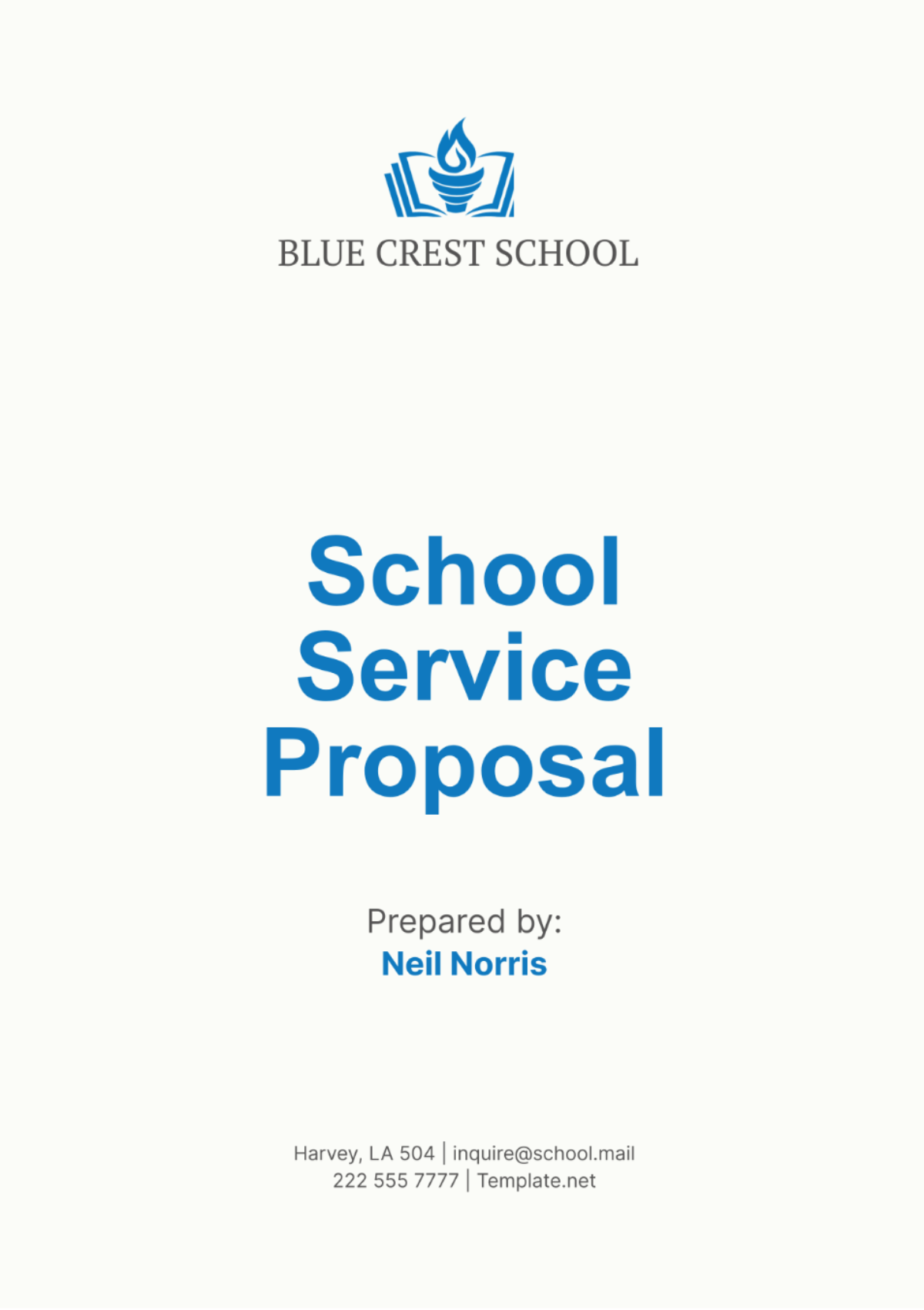
I. Introduction
A. Overview of the Proposal
Our proposed Peer Tutoring Program seeks to address the diverse academic needs of students at [Your Company Name] by offering personalized tutoring sessions facilitated by their peers. This initiative aims to create a supportive learning environment where students can receive targeted academic assistance outside of traditional classroom settings, fostering academic growth and confidence among participants.
B. Importance of Peer Tutoring in Educational Settings
Peer tutoring is widely acknowledged as a highly effective educational strategy that offers numerous benefits beyond merely improving academic outcomes. This approach also plays a crucial role in fostering social and emotional development among students. By leveraging the unique strengths, knowledge, and enthusiasm of our student body, we seek to create an environment where collaboration and mutual support are central values.
Our goal is to establish a school community in which students are encouraged to take active responsibility for their own learning journeys. Through peer tutoring, we aim to empower students to not only enhance their academic achievements but also to build meaningful connections and develop essential interpersonal skills, thereby enriching their overall educational experience.
II. Objectives
A. Primary Objectives
To improve the academic performance of participating students by providing tailored tutoring sessions in core subjects.
To enhance student engagement and motivation through peer-to-peer interaction and support.
To build leadership skills and responsibility among peer tutors by offering them opportunities to mentor and assist their peers academically.
B. Secondary Objectives
To create a supportive learning environment that reduces academic stress and anxiety for students seeking additional academic support.
To strengthen the overall school community by fostering positive peer relationships and a culture of academic excellence.
To equip students with effective study skills and self-regulation strategies that promote lifelong learning and success.
III. Scope of the Program
A. Target Audience
Starting from the very beginning, the program will have a dedicated focus on supporting students who are presently attending grades nine, ten, eleven, and twelve. This cohort of students may require additional academic support in several key disciplines, particularly in the core subjects of Mathematics, the Sciences, English Language Arts, and Social Studies. The objective of this initiative is to furnish these students with the necessary supplementary help that will bolster their comprehension and performance in these vital areas of their education.
B. Subjects Covered
The tutoring sessions will encompass a comprehensive range of fundamental academic subjects. These subjects will be selected based on the specific demands and preferences expressed by the students, as well as the availability of qualified tutors to teach these subjects. In this way, the tutoring services will be tailored to ensure that they are in full alignment with the established curriculum standards. Furthermore, they will be designed to meet the particular learning objectives and educational goals of the students participating in the sessions.
C. Expected Duration and Frequency of Sessions
Each individual tutoring session is anticipated to have a duration of approximately forty-five minutes to one hour. These tutoring sessions are planned to be held weekly, ensuring that they fit the schedules and availability of both the tutor and the student.
By introducing a certain level of flexibility in the timing and organization of these sessions, our goal is to ensure that the program is accessible and convenient for all participants involved. This approach aims to accommodate the diverse needs and commitments of everyone taking part in the program, thereby enhancing its overall effectiveness and inclusivity.
IV. Implementation Plan
A. Recruitment of Peer Tutors
Criteria for Selection
Peer tutors will be selected based on a thorough evaluation of their academic proficiency, which includes their grades and overall understanding of the subject matter. Additionally, their ability to interact effectively with others will be assessed, ensuring they can communicate clearly and establish a positive rapport with their peers. Furthermore, their dedication to providing academic support to fellow students will be taken into consideration, meaning that candidates must demonstrate a genuine commitment to helping others succeed academically.
Training and Orientation Sessions
Tutors who are selected for the program will participate in an extensive and thorough training regimen. This training will encompass a wide range of topics, including various tutoring techniques that are designed to enhance the learning experience of students. Additionally, the training will address effective communication strategies to ensure that tutors can convey information clearly and efficiently. Finally, the training will cover ethical guidelines to guarantee that all tutors adhere to the highest standards of conduct. The overarching goal of this comprehensive training process is to ensure that every tutoring session is delivered with the utmost quality and consistency.
B. Enrollment of Students Needing Tutoring
Identification Process
Students who are in need of tutoring services will undergo an identification process that involves several key steps. Firstly, teachers will play a crucial role by recommending students whom they perceive to be struggling academically. These recommendations will be based on the teachers' observations and interactions with the students during the course of their regular instruction. Secondly, academic records of the students will be thoroughly reviewed to identify any indicators of academic challenges. This could include consistently low grades, poor test scores, or other signs that the student is having difficulty in their studies. Lastly, the process will also accommodate students who proactively seek help by allowing them to refer themselves for tutoring.
This voluntary self-referral system encourages students to take initiative in their own educational journey and seek out the assistance they need. By combining these three approaches—teacher recommendations, academic record reviews, and voluntary self-referrals—we aim to comprehensively identify students who would benefit most from tutoring services.
Matching Students with Tutors
In an effort to maximize the effectiveness of each tutoring session, a detailed and thoughtful process will be employed to carefully match tutors with students. This matching process will take into account the subject expertise of the tutors, ensuring that each tutor possesses a thorough understanding and proficiency in the particular subjects where students require assistance.
Additionally, the compatibility between tutors and students will be considered, aiming to foster a positive and productive working relationship. Furthermore, attention will be given to the specific academic needs of each student, allowing the selection of a tutor who can provide targeted and personalized support tailored to these needs.
C. Scheduling and Logistics
Timetable for Sessions
Sessions will be organized to occur during particular time slots that have been specifically set aside for studying. These time slots will be available after the normal school hours have concluded and also during lunch breaks. This method of scheduling is designed to accommodate the varied schedules of the students, making it possible for the greatest number of students to take part effectively.
Location and Resources Needed
Tutoring sessions are arranged to occur in designated areas that have been specifically allocated for this purpose. These areas are thoroughly equipped with all the essential resources necessary to promote and facilitate productive and effective tutoring interactions. Among these resources, you will find a diverse array of textbooks that cover a wide range of subjects and topics. Additionally, computers are available to ensure that students have access to digital tools and online resources, which can be crucial for their learning.
Furthermore, various supplementary learning materials are provided to support and enhance the educational experience during the tutoring sessions. These supplementary materials may include worksheets, practice exams, educational games, visual aids, and other tools designed to address different learning styles and needs, ensuring that each student can benefit fully from the tutoring provided. This comprehensive approach aims to create an optimal learning environment where students can thrive and achieve their academic goals.
V. Curriculum and Resources
A. Development of Tutoring Materials
Tutoring materials will be developed collaboratively with subject teachers to align with classroom instruction and address specific learning objectives. These materials will incorporate interactive exercises, practice problems, and conceptual explanations to enhance student comprehension and retention.
B. Access to Additional Learning Resources
In addition to the carefully selected and organized tutoring materials provided, both tutors and students will also have the benefit of accessing a wide range of supplementary online resources. These additional resources encompass a variety of educational software programs, as well as extensive digital libraries. This comprehensive suite of tools is designed to enhance the learning process and ensure that it is well-rounded and adaptable. By offering such diverse and versatile resources, the aim is to cater effectively to the varying learning styles and individual preferences of each student.
C. Integration with Existing Curriculum
The Peer Tutoring Program will seamlessly integrate with our school’s existing curriculum by aligning tutoring sessions with classroom instruction and learning objectives. Tutors will collaborate closely with subject teachers to reinforce key concepts, address specific learning gaps identified in class, and provide supplementary materials that enhance understanding.
By complementing classroom learning, the program aims to support students in mastering challenging topics and applying acquired knowledge effectively. This integration will promote continuity in learning experiences, ensuring that tutoring sessions are relevant, meaningful, and directly beneficial to students’ academic growth.
Additionally, tutors will be trained to adapt tutoring strategies to accommodate diverse learning styles and individual needs, thereby fostering inclusive educational practices within our school community. This approach not only supports academic achievement but also promotes a deeper engagement with the curriculum among participating students.
VI. Benefits
A. Benefits to Student Participants
Participating students will experience significant academic gains as they receive personalized tutoring that targets their specific learning needs and challenges. This program will not only improve their grades but also deepen their understanding and confidence in subjects like Math, Science, English, and Social Studies.
Beyond academic improvement, students will develop crucial study skills and strategies that enhance their overall learning experience. They will also benefit socially by building supportive relationships with their peer tutors, fostering a positive school environment.
B. Benefits to Peer Tutors
Peer tutors will gain valuable leadership experience by guiding and supporting their peers academically. This role will strengthen their communication skills as they articulate complex concepts and adapt tutoring strategies to meet individual learning styles.
Serving as tutors will deepen their own understanding of subjects as they explain and reinforce key concepts to their peers, solidifying their mastery of academic material. This experience will enhance their academic credentials and readiness for future academic and professional endeavors.
C. Benefits to the School Community
The Peer Tutoring Program will contribute to a cohesive school community by promoting collaboration and mutual support among students. This initiative aligns with our school’s mission to foster holistic student development and academic excellence.
Improved academic outcomes and student engagement will enhance the school’s reputation and attractiveness to prospective students and families. By showcasing our commitment to academic support and student success, we reinforce our standing as a leading educational institution in the community.
VII. Evaluation and Assessment
A. Metrics for Success
Academic Improvement
Measure changes in participating students’ grades and academic performance across multiple subjects throughout the program duration.
Conduct pre- and post-tutoring assessments to quantify improvements in understanding and application of subject-specific knowledge.
Participant Feedback
Implement regular surveys and focus groups to gather qualitative feedback from both students and tutors regarding their experiences with the program.
Monitor attendance and participation rates to gauge program effectiveness and identify areas for enhancement or adjustment.
B. Continuous Improvement Plan
Adjustments Based on Feedback
Use feedback from evaluations to refine tutoring strategies, revise session formats, and adjust scheduling to better meet the needs of students and tutors.
Offer ongoing professional development opportunities for tutors to enhance their tutoring skills and effectiveness in supporting diverse learning styles.
Long-term Sustainability
Develop a sustainable funding model that includes exploring grant opportunities, securing donations, and leveraging community partnerships to support program costs.
Establish a recruitment and training framework for new tutors annually, ensuring continuity and growth of the program over time.
VIII. Budget
A. Initial Costs
Item | Cost Estimate |
|---|---|
Training Materials | $[0] |
Recruitment Efforts | |
Total Initial Costs |
The initial costs of launching the Peer Tutoring Program will primarily cover essential training materials and recruitment efforts. These expenses include printing training manuals, developing promotional materials, and conducting initial tutor orientation sessions.
B. Ongoing Expenses
Item | Annual Cost |
|---|---|
Supplies and Resources | $[0] |
Staff Support | |
Total Annual Expenses |
Ongoing expenses will include supplies and resources for tutoring sessions, such as textbooks, educational software licenses, and stationery. Additionally, staff support costs may be incurred if stipends are provided to coordinators overseeing the program’s day-to-day operations.
- 100% Customizable, free editor
- Access 1 Million+ Templates, photo’s & graphics
- Download or share as a template
- Click and replace photos, graphics, text, backgrounds
- Resize, crop, AI write & more
- Access advanced editor
Simplify your school service proposal process with Template.net's editable and customizable School Service Proposal Template. Tailor your proposal effortlessly using our intuitive AI Editor Tool, ensuring every detail meets your school's unique needs. Streamline your workflow and impress stakeholders with a professional, polished proposal that reflects your vision and enhances your educational initiatives.
You may also like
- Business Proposal
- Research Proposal
- Proposal Request
- Project Proposal
- Grant Proposal
- Photography Proposal
- Job Proposal
- Budget Proposal
- Marketing Proposal
- Branding Proposal
- Advertising Proposal
- Sales Proposal
- Startup Proposal
- Event Proposal
- Creative Proposal
- Restaurant Proposal
- Blank Proposal
- One Page Proposal
- Proposal Report
- IT Proposal
- Non Profit Proposal
- Training Proposal
- Construction Proposal
- School Proposal
- Cleaning Proposal
- Contract Proposal
- HR Proposal
- Travel Agency Proposal
- Small Business Proposal
- Investment Proposal
- Bid Proposal
- Retail Business Proposal
- Sponsorship Proposal
- Academic Proposal
- Partnership Proposal
- Work Proposal
- Agency Proposal
- University Proposal
- Accounting Proposal
- Real Estate Proposal
- Hotel Proposal
- Product Proposal
- Advertising Agency Proposal
- Development Proposal
- Loan Proposal
- Website Proposal
- Nursing Home Proposal
- Financial Proposal
- Salon Proposal
- Freelancer Proposal
- Funding Proposal
- Work from Home Proposal
- Company Proposal
- Consulting Proposal
- Educational Proposal
- Construction Bid Proposal
- Interior Design Proposal
- New Product Proposal
- Sports Proposal
- Corporate Proposal
- Food Proposal
- Property Proposal
- Maintenance Proposal
- Purchase Proposal
- Rental Proposal
- Recruitment Proposal
- Social Media Proposal
- Travel Proposal
- Trip Proposal
- Software Proposal
- Conference Proposal
- Graphic Design Proposal
- Law Firm Proposal
- Medical Proposal
- Music Proposal
- Pricing Proposal
- SEO Proposal
- Strategy Proposal
- Technical Proposal
- Coaching Proposal
- Ecommerce Proposal
- Fundraising Proposal
- Landscaping Proposal
- Charity Proposal
- Contractor Proposal
- Exhibition Proposal
- Art Proposal
- Mobile Proposal
- Equipment Proposal
- Student Proposal
- Engineering Proposal
- Business Proposal
